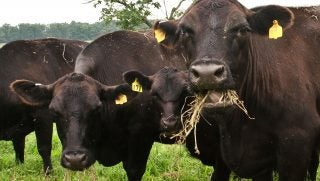Global equity investor Vikram Mansharamani believes the world’s economy may soon see a demand shock.
“This deglobalization world we are currently seeing is a short time blip. I think countries will eventually revert back to globalization in a positive way,” Mansharamani said as he examined global issues such as China’s economic slowdown and Africa and India’s growing middle class to consumption patterns, millennial mindsets, and the latest technological innovations during his presentation, “Navigating Global Economic Uncertainty” at the Bayer AgVocacy Forum in San Antonio, Texas, this week.
Mansharamani gave the examples of Uber, the most valuable transportation company but doesn’t own a car; Airbnb, the most valuable travel company but doesn’t own one hotel room; and Facebook, the most valuable media company but doesn’t produce any content.
“We are unlocking underutilized capital,” Mansharamani said. “We are producing more output.”
The renowned author of “BOOMBUSTOLOGY: Spotting Financial Bubbles Before They Burst” and an academic advisor at Harvard University and Yale University shared eight items the agricultural industry should look for in the future economy:
1. Economic growth — where will growth continue? Will GDP continue to rise? Mansharamani said a bubble burster to look for are which countries are building the tallest skyscrapers. The world’s tallest tower is usually a sign of hubris and overconfidence.
2. GDP is not equal to GDP per capita. This size of the pie says nothing about how income will be distributed. For example, in an hour Nigeria’s population will raise 540+ and India 1,800+, but will India’s growing population consume meat and how much?
3. Hidden protein supplies — Technology is also coming into the livestock sector, such as genetically modified salmon. Are we entering a food supply boom? As people get wealthier, their diets shift towards more protein, fruits, vegetables, sugars, oils, and fats.
4. Productivity continues to grow in agriculture through precision ag and automated systems. We need to look at both demand and supply.
5. Examine the cost of energy and inputs.
6. Traceability improvements and a demand shift preference.
7. Climate change — Fundamentally a warmer planet has less yields. Mansharamani pointed out generally a one degree rise in temperature means a 10 percent drop in yield.
8. Political situation all around the world can affect immigration, tax reform, infrastructure, trade details, and regulations.
For row crop farmers feeding into this supply boom but also wanting to make a living for their family, Mansharamani suggests not making too many short-term investments.
“Fundamentally, it is a game of patience. That means on a tactical basis don’t get too financially aggressive,” Mansharamani said. “Play the game for the long run.”



